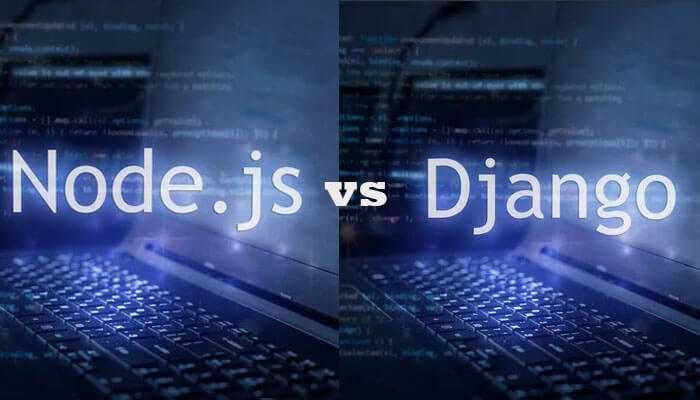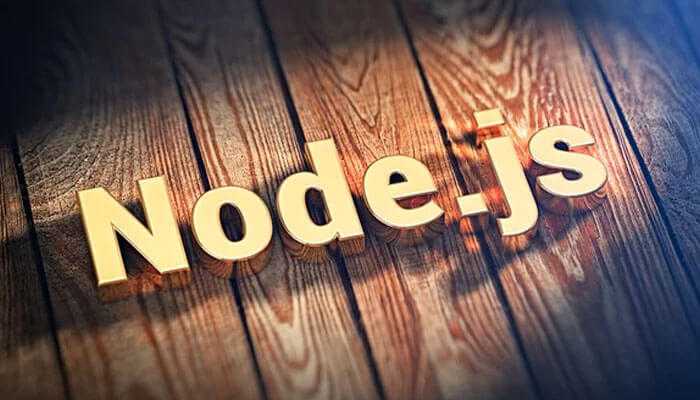Developers often face the dilemma: Node.js vs Django – which backend framework is best for developing admin panels? While Node.js offers scalability and real-time capabilities, Django stands out with its built-in admin interface and security features. If you’re exploring a node django admin alternative, there are also modern tools and frameworks to consider. In this guide, we compare Node.js vs Django to help you decide the right solution for your project.
What Is Node.js?
Node.js is an open-source JavaScript runtime environment powered by Chrome’s V8 engine, allowing developers to execute JavaScript code on the server side seamlessly. Its asynchronous, non-blocking architecture makes it ideal for handling multiple connections simultaneously, making it particularly useful for real-time applications and systems that need to process high volumes of concurrent requests.
Key Features of Node.js for Admin Panel Development:
1. Single Language for Frontend and Backend: With Node.js, developers can use JavaScript for both the client and server, streamlining development processes.
2. Scalability: Node.js is designed for horizontal and vertical scaling, making it an excellent choice for projects that anticipate growth.
3. Extensive Ecosystem: NPM (Node Package Manager) provides a vast collection of libraries and modules, enabling developers to accelerate development and simplify the integration of new features.
4. Event-Driven Architecture: Ideal for building real-time features like chats, notifications, and live dashboards.
However, Node.js may require additional effort to set up admin panels compared to Django, as it doesn’t have a built-in admin interface. Developers often rely on libraries like Express.js, NestJS, or external tools to build such functionality.
What Is Django?
Django is an advanced Python-based web framework designed to enable fast development and foster clean, efficient coding practices. It’s known for its “batteries-included” philosophy, offering built-in tools and features to simplify common web development tasks.
Key Features of Django for Admin Panel Development:
1. Built-in Admin Panel: Django’s admin interface is a powerful tool that allows developers to manage databases and application content effortlessly.
2. Security: Django includes robust features to protect against common threats like SQL injection, cross-site scripting (XSS), and cross-site request forgery (CSRF).
3. Scalability: While traditionally considered a monolithic framework, Django can scale effectively with the right architectural design.
4. ORM (Object-Relational Mapping): Django’s ORM simplifies database interactions, allowing developers to work with data as Python objects.
For developers focusing on admin panels, Django’s built-in admin interface is a significant advantage, as it offers a ready-to-use solution for managing data models without extensive customization.
Exploring AdminForth as an Alternative
If you’re searching for a Node Django admin alternative, AdminForth is a modern platform worth considering. AdminForth simplifies the development of powerful admin panels with a user-friendly interface and advanced features. Designed to work seamlessly with Node.js and Vue.js, AdminForth enables developers to create scalable and customizable admin solutions with minimal effort.
Key benefits of AdminForth include:
1. Fast Setup: Rapidly build admin dashboards without complex configurations.
2. Seamless Node.js Integration: Built specifically to complement Node.js backends and Vue.js frontends.
3. Modern UI: Comes with clean, intuitive interfaces for managing data and workflows.
AdminForth serves as a strong alternative for projects where traditional frameworks like Node.js might require too much custom setup or additional libraries.
Node.js vs Django: Detailed Comparison
1. Ease of Use
js: Requires more setup for admin panels. While Node.js is versatile, developers often need to integrate additional libraries or build custom solutions for administrative interfaces.
Django: Out-of-the-box admin panel support makes Django a straightforward choice for projects where managing data models is a priority.
2. Performance and Scalability
js: Its event-driven architecture excels in high-performance scenarios, especially for real-time applications or systems with heavy I/O operations.
Django: Python’s interpreted nature means Django is generally slower than Node.js for real-time tasks, but it’s sufficient for admin panel operations.
3. Integration with Frontend Frameworks
js: Naturally integrates with frontend libraries like React, Vue.js, and Angular, thanks to JavaScript being used on both ends.
Django: Requires additional configuration to work seamlessly with frontend frameworks, as Python is not a native language for frontend development.
4. Community and Ecosystem
js: The JavaScript ecosystem is vast, with an extensive range of packages available through NPM. Frameworks like Express.js, NestJS, and LoopBack can aid in building admin panels.
Django: Django has a mature community and a wide range of plugins, but it’s more focused on backend development than frontend or full-stack workflows.
5. Customization
js: Offers more flexibility for creating custom solutions, as you have full control over the framework and tools you use.
Django: While customizable, Django’s structure can feel restrictive for developers looking for complete freedom in architecture.
When to Choose Node.js for Admin Panels
Node.js is a great choice for admin panels if:
1. You already have a JavaScript-based tech stack (e.g., React or Vue.js).
2. Your project requires real-time features like live dashboards or notifications.
3. Scalability and performance are top priorities.
4. You’re comfortable setting up custom solutions or using frameworks like Express.js or NestJS.
Popular Tools for Admin Panels with Node.js:
1. AdminBro (now AutoAdmin): A library for generating admin panels in Node.js.
2. NestJS: A progressive framework for building scalable server-side applications.
3. AdminForth: A modern solution for Node.js and Vue.js admin panels.
When to Choose Django for Admin Panels
Django is ideal for admin panels if:
1. You need a built-in admin interface with minimal configuration.
2. Security and stability are key concerns for your project.
3. You’re working with data-heavy applications that require an ORM.
4. Your team is familiar with Python or prefers Python over JavaScript.
Key Takeaways: Node.js vs Django
1. js is best for scalable, real-time applications with a JavaScript stack.
2. Django is ideal for secure, data-heavy projects with a built-in admin interface.
3. AdminForth offers a flexible alternative for fast, customizable admin panel development specifically for Node.js and Vue.js.
4. Choose js for flexibility; choose Django for simplicity and rapid development.
Conclusion: Node.js vs Django for Admin Panel Development?
Choosing between Node.js vs Django for admin panel development depends on your project’s requirements, team expertise, and desired features.
1. If you prioritize flexibility, scalability, and performance, Node.js is a solid choice.
2. On the other hand, if you need a secure, out-of-the-box solution with a built-in admin panel, Django is hard to beat.
3. For a Node Django admin alternative, consider using AdminForth for its modern, efficient approach to admin panel development with Node.js and Vue.js.
Ultimately, the right choice will depend on your project’s unique needs. Whether you go with Node.js, Django, or a modern tool like AdminForth, you’ll be well-equipped to build a powerful admin panel.



